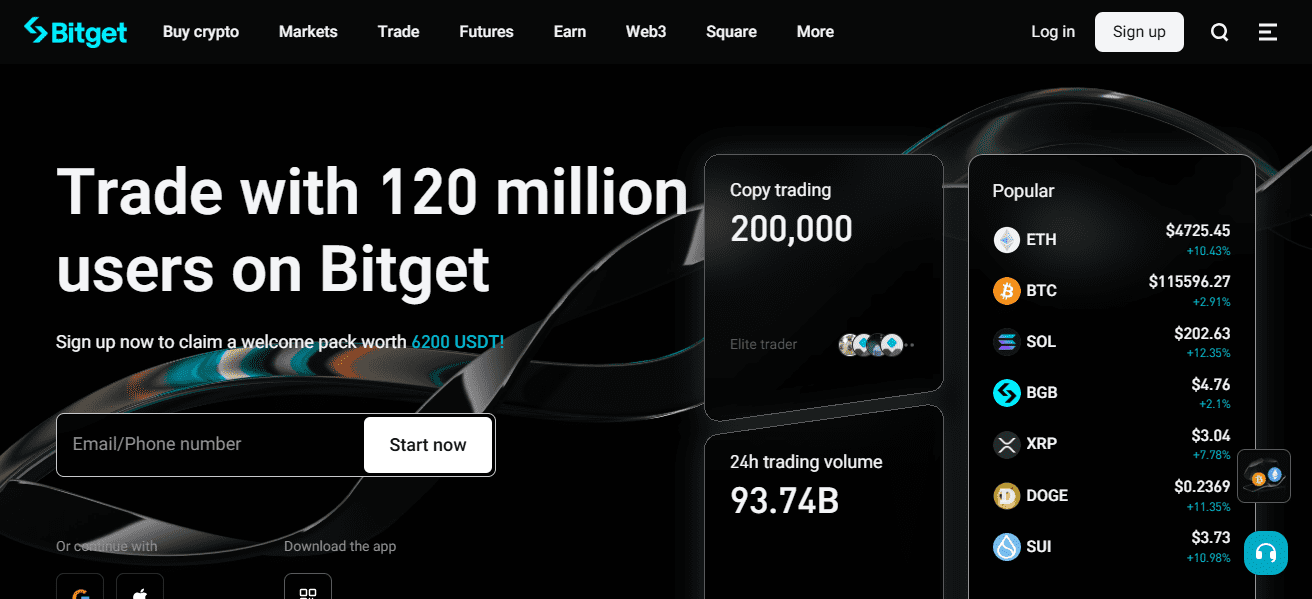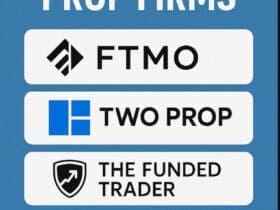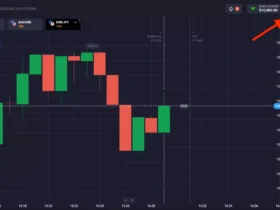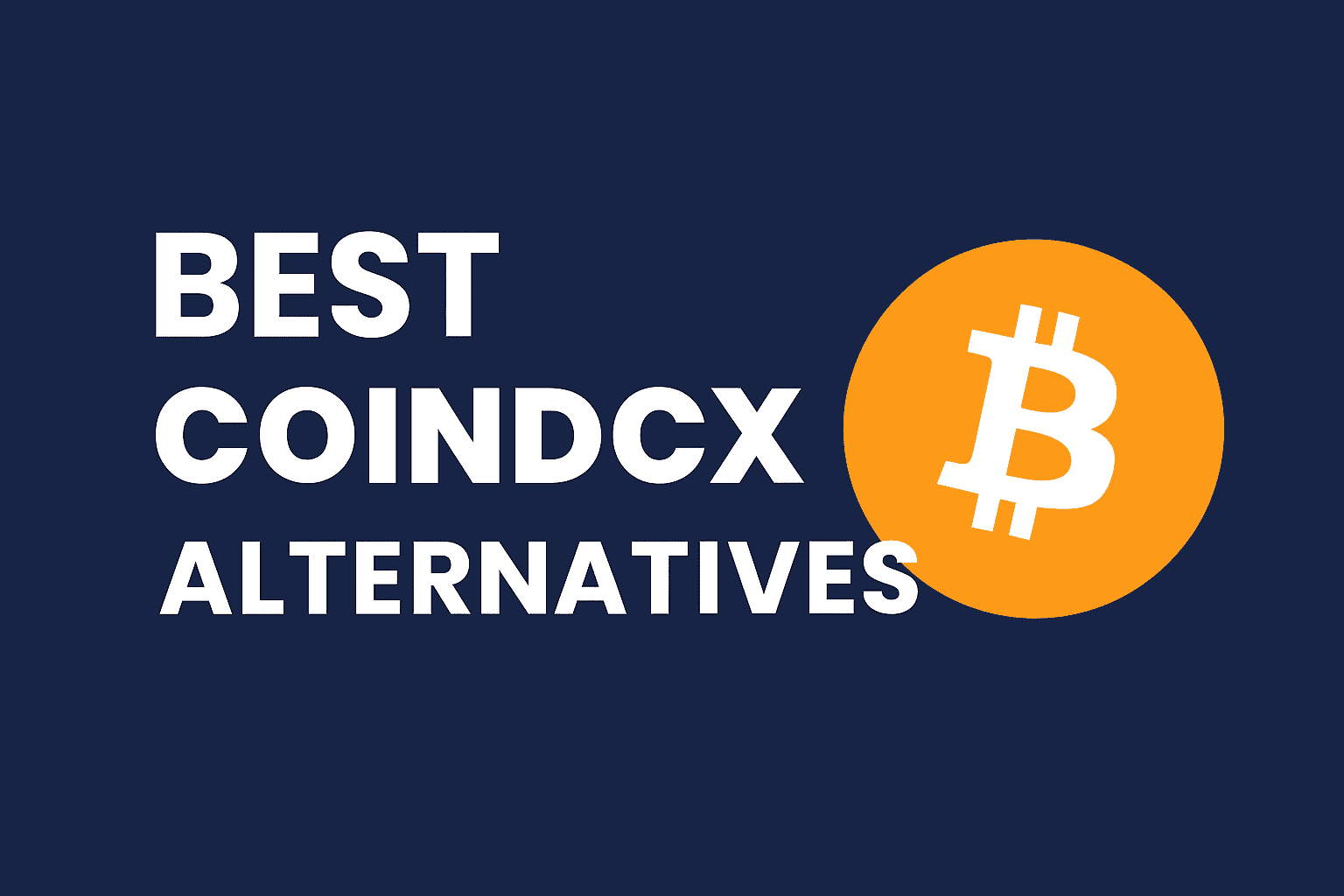In This article we examines the leading Bitget Exchange alternatives across the globe. Even though Bitget is recognized for its copy trading and derivatives, several other platforms have proprietary advantages, superior liquidity, or a wider selection of cryptocurrencies.
These alternatives span from novice-friendly exchanges to professional trading platforms, catering to traders from all around the world and providing different trading and investment styles.
What Are Bitget Exchange Alternatives?
Bitget Exchange alternatives are other global trading platforms for cryptocurrencies that offer just as many or additional services as Bitget.
Some strongest competitors for Bitget are Binance, Bybit, OKX, KuCoin, and Kraken, each offering broader asset listings, advanced security, or deeper liquidity.
Some exchanges, such as Deribit and dYdX, focus solely on derivatives and decentralized trading, while others emphasize regulation and easy access for newcomers, like Coinbase and Bitstamp.
How We Choose Bitget Exchange Alternatives Worldwide?
Trading Products – Ensuring all exchanges offer at least a comparable equivalent of Bitget’s offerings which include spot, futures, options, copy trading, and staking.
Liquidity & Fees – Assessing the presence of and efficiency of execution for deep order books, tight spreads, and competitive trading fees which impact user profitability.
Security & Regulation – Giving priority to exchanges that provide stringent security measures, proof of reserves, licensing, and compliance with legal standards worldwide.
Global Accessibility – Evaluating the outreach a platform could potentially have in regard to fiat-branching, country restriction, and platform multilingual availability.
Key Points & Bitget Exchange Alternatives Worldwide List
| Exchange | Key Point |
|---|---|
| Binance | Largest global exchange with low fees (0.1%) and extensive crypto listings. |
| Bybit | Known for derivatives trading, leverage up to 100x, and strong liquidity. |
| OKX | Offers spot, futures, and options trading with advanced DeFi integration. |
| KuCoin | Supports 700+ coins, popular for altcoin trading, and has a social trading feature. |
| Kraken | US-regulated exchange with strong security and fiat on/off ramps. |
| Coinbase | Beginner-friendly, publicly listed in the US, with high regulatory compliance. |
| Huobi (HTX) | Long-established Asian exchange with deep liquidity in altcoins. |
| Gate.io | Popular for new token listings, wide asset selection, and low fees. |
| MEXC | High leverage futures (up to 200x) and large selection of trading pairs. |
| Deribit | Leading crypto options exchange, specializing in BTC and ETH contracts. |
| Crypto.com Exchange | Integrated with Crypto.com app, Visa card perks, and staking rewards. |
| Bitfinex | Veteran exchange with advanced trading tools and deep order books. |
| Phemex | Futures-focused platform with zero-fee spot trading and quick execution. |
| Poloniex | Legacy exchange with wide crypto markets and low spot fees. |
| BingX | Social copy trading platform with strong derivatives offerings. |
| dYdX | Leading decentralized perpetual futures exchange with non-custodial trading. |
| Bitstamp | One of the oldest regulated exchanges, reliable fiat gateways. |
| Coincheck | Japan’s leading exchange, strong compliance, and beginner-friendly interface. |
| LBank | Global exchange with diverse altcoins and competitive trading fees. |
| AscendEX | Offers staking, margin, and futures with strong Asian market presence. |
20 Bitget Exchange Alternatives Worldwide
1.Binance
Due to Binance’s unrivaled ecosystem, scale, and technology, it remains one of the best alternatives to Bitget Exchange.
Binance and Bitget differ greatly in their offered services, with the latter only specializing in derivatives and copy trading, and the former specializing in spot trading, futures, options, staking, savings, and even an NFT marketplace.
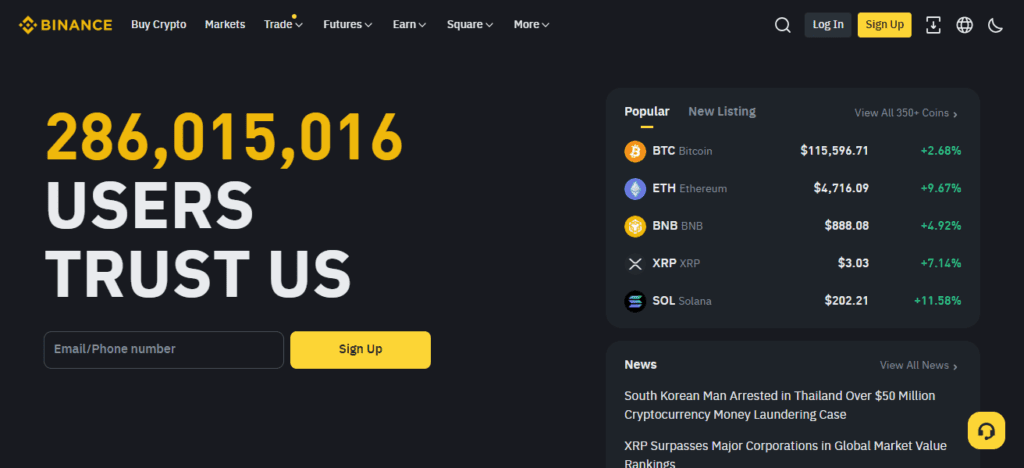
Binance also offers derivatives and copy trading. Binance charges one of the lowest trading fees in the industry, standing at 0.1%.
With the added Binance Coin (BNB) discount model, it becomes an even stronger advantage for retail and institutional traders alike.
With thousands of trading pairs and high liquidity, it is guaranteed that there will be minimal slippage. Binance’s standing in the industry, reputation of strong security, and innovation make it the best choice.
2.Bybit
Bybit’s global competitiveness when compared to Bitget Exchange lies in its focus on derivatives trading, specifically on its user-friendly platform catered to industry veterans and novices alike. Unlike Bitget, which emphasizes copy trading
Bybit distinguishes itself with highly liquid perpetual contracts, up to 100x leverage, and advanced risk management tools like insurance funds and dual-price systems which reduce manipulation risk.

Moreover, global traders are captivated by Bybit’s launchpad access for new tokens and other mobile-friendly features. Bybit is a reliable alternative to Bitget because of its industry leading transparency, speed of execution, and trader-first ecosystem.
3.OKX
Due to its mix of centralized and decentralized trading opportunities, OKX is a great replacement for Bitget Exchange on a global scale. In contradiction to Bitget’s focus on copy trading and futures, OKX offers an integrated Web3 wallet, DeFi, NFTs, and even more—like spot trading and derivatives.
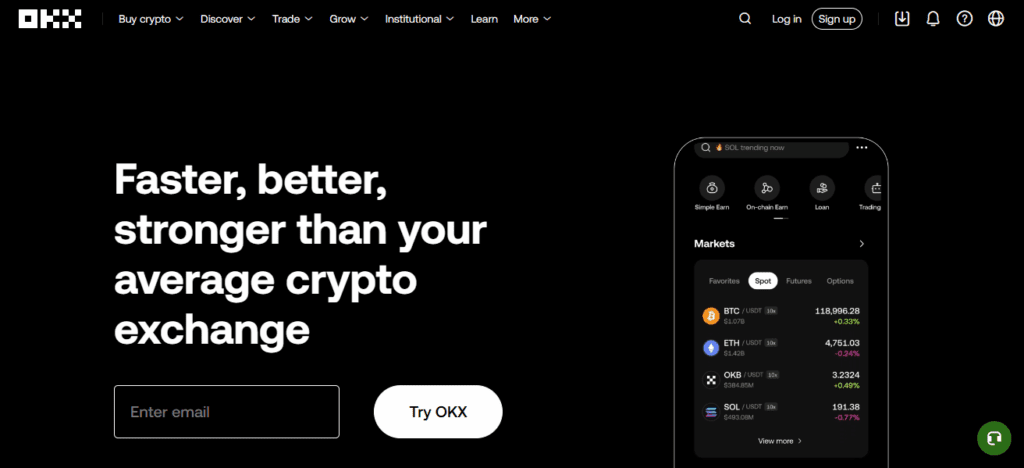
OKX also has an integrated advanced trading engine that is a great asset for professional traders, with its high liquidity and deep order books.
Furthermore, OKX offers Earn products, staking, and other forms of passive income. Due to OKX’s constant efforts to expand on multi-chain innovations and its user-friendly ecosystem, it is more likely to be preferred over Bitget.
4.KuCoin
KuCoin serves as a global alternative to Bitget Exchange due to its moniker as “the people’s exchange,” which gives users access to a broad selection of over 700 cryptocurrencies.
As Bitget concentrates exclusively on copy and futures trading, KuCoin captures trader interest with early listings of new altcoins and strong community-driven programs.
Through its unique KuCoin Shares (KCS) token system, users can reduce trading expenses and receive daily KCS token rewards, making trading less expensive.

Furthermore, KuCoin offers margin and futures trading, as well as automated trading bots, enhancing trading flexibility. Compared to Bitget, Bitget’s unmatched flexibility, innovation, and vast choice of assets give it an advantage over Bitget.
5.Kraken
Kraken is recognized for its strong Bitget Exchange competitors due to its regulatory compliance and security features.
Unlike Bitget which mostly caters to derivatives traders, Kraken offers spot, margin, and futures trading, catering to both retail and institutional traders.
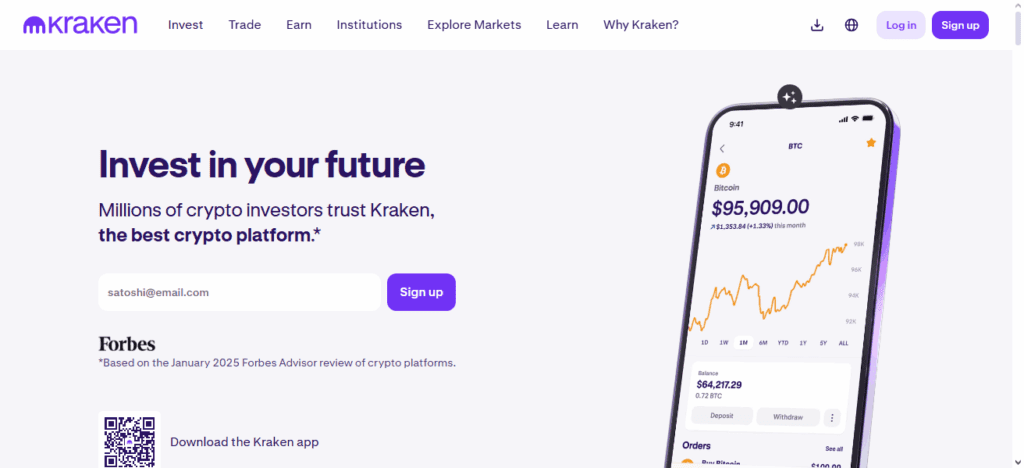
Its unique strengths include transparent proof-of-reserves audits which reinforce users’ trust. Kraken’s multiple fiat on/off ramp supports also aid global users to access the platform easily.
Its long standing track record along with regulatory alignment and security strengthens its position as a credible competitor to Bitget.
6.Coinbase
Given its regulatory standing and ease of use, especially for new users, Coinbase serves as a strong replacement for Bitget Exchange on a global scale.
Unlike Bitget, which focuses on advanced features and copy trading, Coinbase offers heightened accessibility to crypto through a clean interface, easier educational resources, and seamless integration of fiat currencies.
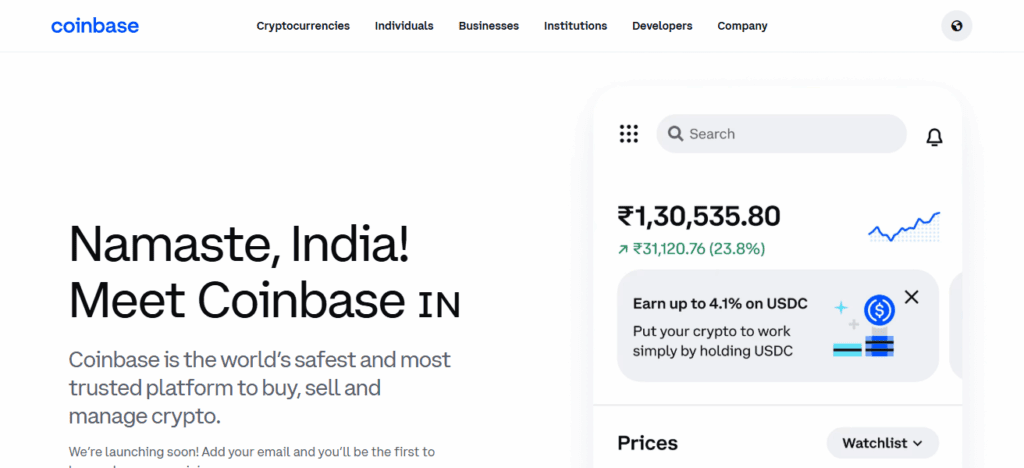
Coinbase’s unique point including being a publicly listed company on Nasdaq adds to transparency and investor trust which is a rare sight in the crypto sector.
Furthermore, Coinbase provides insured custodial wallets, institutional-grade protective solutions, and strong compliance structures. All these make it a Bitget alternative, easier and safer to use for traders.
7.Huobi (HTX)
Huobi (HTX) is an international leader and rivals Bitget Exchange in these areas. While Bitget is known for its copy trading and derivatives, Huobi stands out with its extensive market access and full-range offering of spot trading, futures trading, and staking services.
Somewhat unique is the speed with which Huobi lists new and trending digital assets, which enables traders to access new opportunities sooner and at better prices.
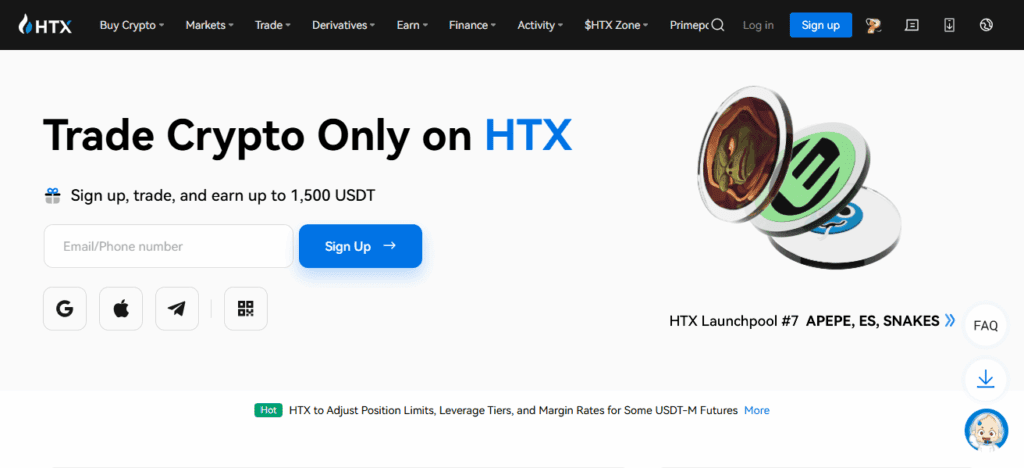
Along with strong security measures, Huobi’s multi-region presence and its app make trading easy and flexible, which, along with its competitiveness to Bitget, makes it an appealing option for traders.
8.Gate.io
Gate.io competes with Bitget Exchange as one of the first to offer new or unusual cryptocurrencies.
Unlike Bitget, known for specializing in derivatives and copy trading, Gate.io is popular among spot traders and altcoin traders due to the availability of thousands of trading pairs.
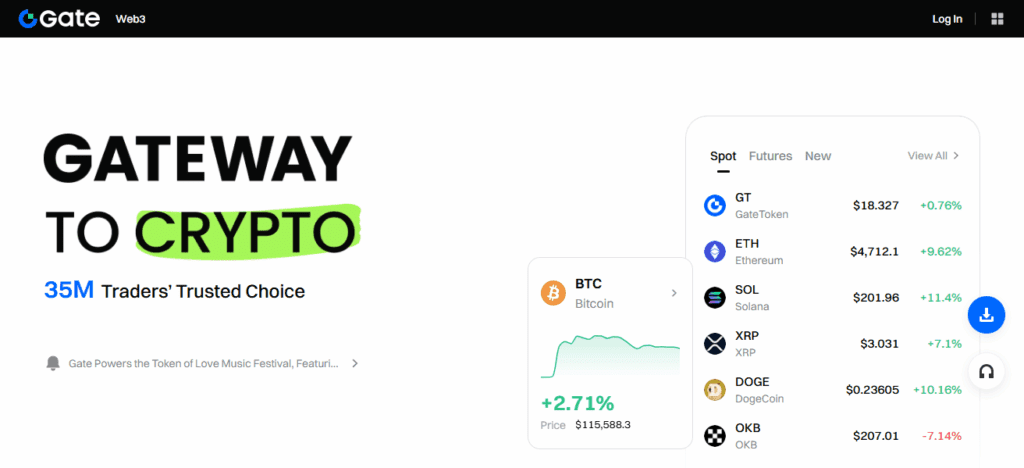
Their distinguishing feature is the vastness of their listings which oftentimes helps users gain access to tokens long before they become popular on bigger platforms.
Moreover, Gate.io also offers futures and margin trading, alongside passive income services like staking. This diverse collection, coupled with being one of the first to offer tokens, and a wide international reach makes it a strong competitor to Bitget.
9.MEXC
MEXC serves as a strong replacement for Bitget Exchange with its expansive collection of cryptocurrencies as well as high-leverage derivatives trading.
While Bitget has made a name for itself with its copy trading feature, MEXC differentiates itself with a leveraged 200x futures contract, catering to seasoned and aggressive professionals.
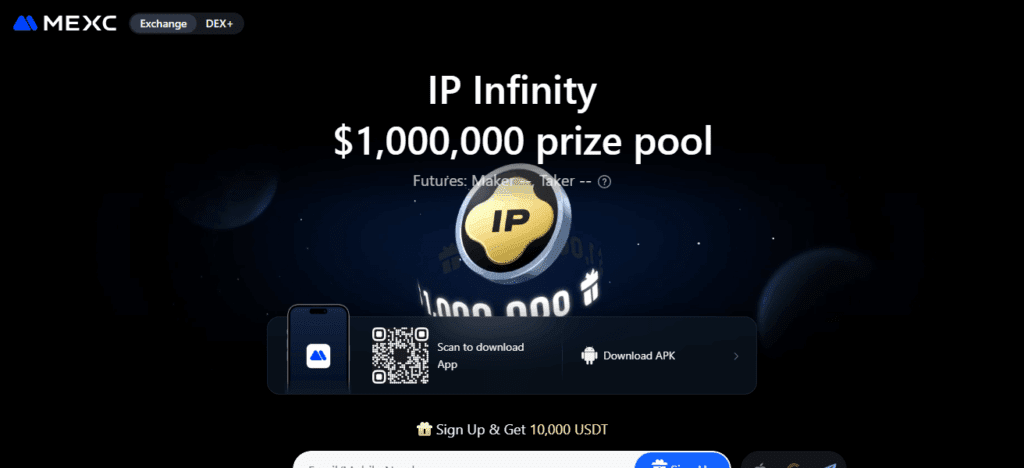
In addition, MEXC has a vast collection of altcoins and lists them way ahead of most of their competitors which provides users with earlier access to new opportunities.
Another outstanding feature is having an advanced trading engine optimized for minimal slippage during high trading volumes. With a lack of geographical restrictions, low trading fees, and a wide variety of services, MEXC serves as a dynamic alternative to Bitget.
10.Deribit
Deribit serves as a leading global alternative to Bitget Exchange due to its focus on crypto options and futures trading. While Bitget is known for copy trading and perpetual contracts, Deribit stand out as a leader in the options market, especially for Bitcoin and Ethereum.
Its comprehensive derivatives platform provides industry-standard functionality, professional-grade liquidity, and exact risk management features designed for large-scale and expert traders.
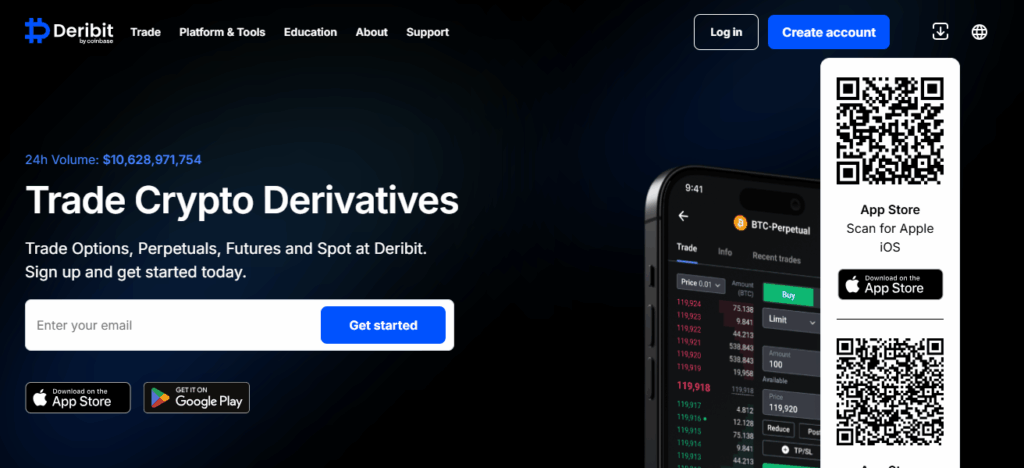
Its differentiating factor is its groundbreaking efforts towards developing the crypto options market, a courtesy few exchanges attempt. This emphasis on sophisticated strategies makes Deribit a useful complement for traders wanting additional services beyond Bitget.
11.Crypto.com Exchange
Crypto.com Exchange serves as a noteworthy competitor to Bitget Exchange because it serves as a window to the greater Crypto.com ecosystem which offers more than just trading services.
Unlike Bitget which mainly offers a single focus on derivatives and copy trading, Crypto.com has an integrated ecosystem which features spot and futures trading, and also allows the spend of cryptocurrency via their Visa card.
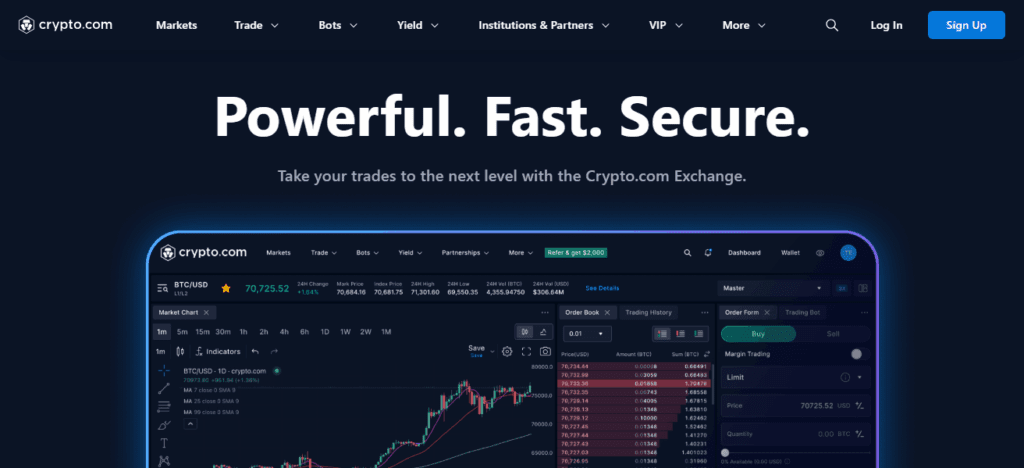
One of the most distinguishing features is the utility of the CRO token which offers trading fee waivers, additional rewards, and other perks that are exclusive on the platform.
Emphasizing the exchange’s reputation, Crypto.com has earned strong security certifications and regulatory focus which, alongside the app’s all-in-one feature, allows Crypto.com Exchange to strongly compete with Bitget.
12.Bitfinex
Bitfinex is an industry leader and an alternative to Bitget Exchange because of its professional-grade trading environment and liquidity.
Bitget draws in new customers with its simplified derivative products and copy trading features. In contrast, Bitfinex stands out with its bespoke order types, margin funding, and access to vast liquidity pools.
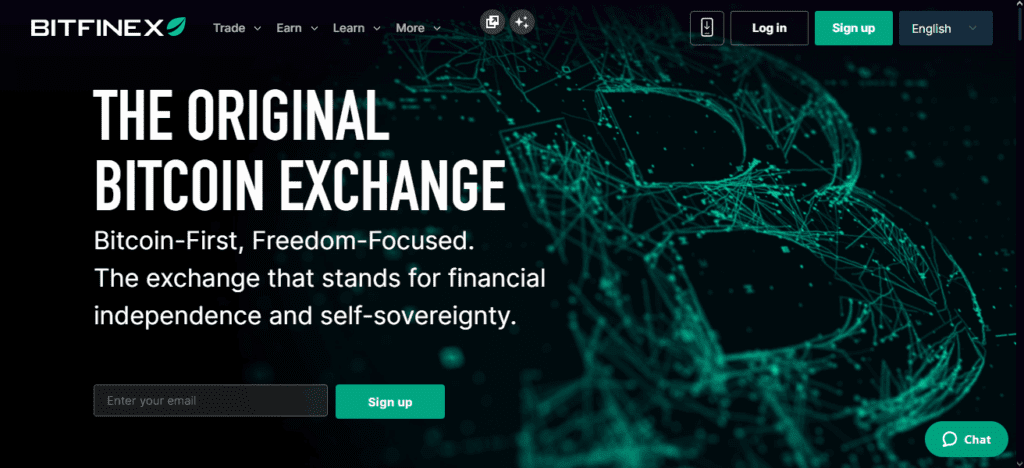
What sets Bitfinex further apart is its strong appeal to institutional clients, offering advanced trading APIs, high throughput, and P2P financing supporting lending markets.
Bitfinex’s longevity in the industry, coupled with his strong reputation for innovation and efficiency, makes it a reliable option for users looking for a sophisticated substitute to Bitget.
13.Phemex
Phemex serves as an effective global substitute for Bitget Exchange due to its focus on derivatives as well as its easy to use interface.
While Bitget focuses on attracting new users through copy trading, Phemex differentiates itself with its zero-fee spot trading model which provides traders with inexpensive access to numerous assets.
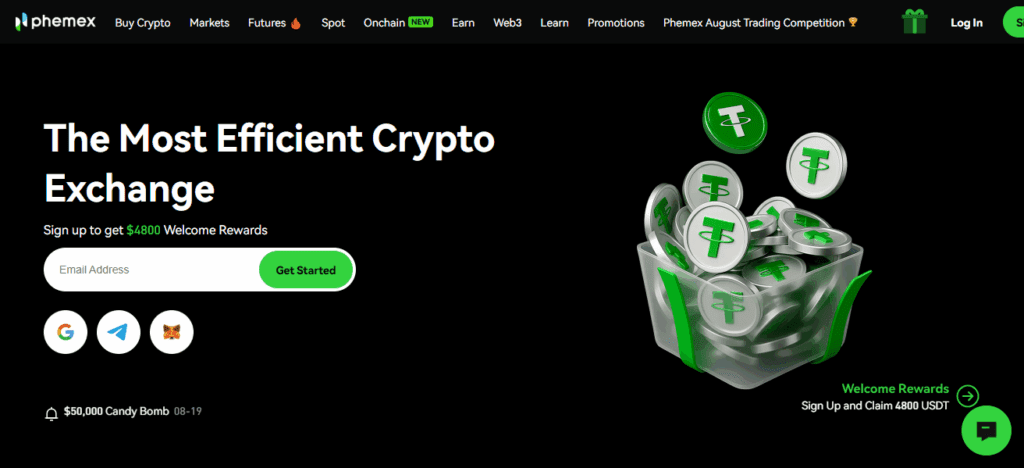
Outstanding is its equilibrium between simplicity and professional-grade tools with advanced futures contracts and an easy to use intuitive interface.
Phemex also incorporates other functions like savings products and trading challenges, which add value to both novices and seasoned users.
14.Poloniex
Poloniex’s long history in the crypto world and the variety of assets listed make it an alternative to Bitget Exchange used all over the world. While Bitget focuses on derivatives and copy trading, Poloniex targets users with low spot trading fees and both popular and niche altcoins.
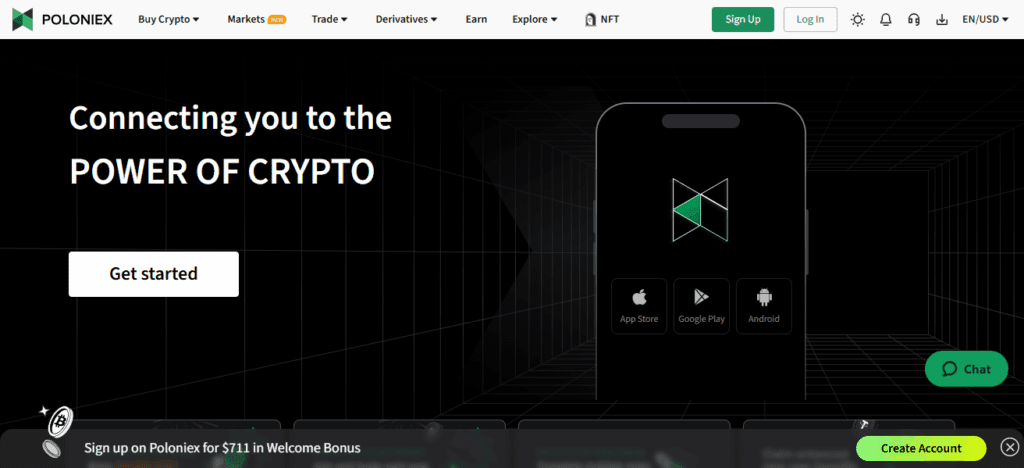
Beginners are offered a singular wide reach and liquidity, while advanced margin and futures traders are offered constant innovation. Compared to Bitget, Poloniex offers more practicality and versatility.
15.BingX
BingX competes on a global scale with Bitget Exchange due to its social trading component and a wide array of trading products. While Bitget is known for its copy trading ecosystem, BingX sets itself apart with its more social and interactive approach, enabling users to follow and copy skilled traders with ease.

An exclusivity set apart of BingX is the ability to integrate both crypto and traditional markets which allows users to trade crypto, forex, cryptocurrencies, and even indices and commodities all in one platform.
Coupled with more user-friendly utilities, and the availability of derivatives, this broad range of assets makes BingX increasingly preferable to Bitget for traders around the world.
16.dYdX
dYdX distinguishes itself as a worldwide competitor to Bitget Exchange because, unlike others, it functions as a fully-fledged decentralized exchange and offers a professional-grade trading experience.
dYdX and Bitget differ in that while Bitget is a centralized exchange that utilizes custodial accounts, dYdX permits users to trade from non-custodial wallets.
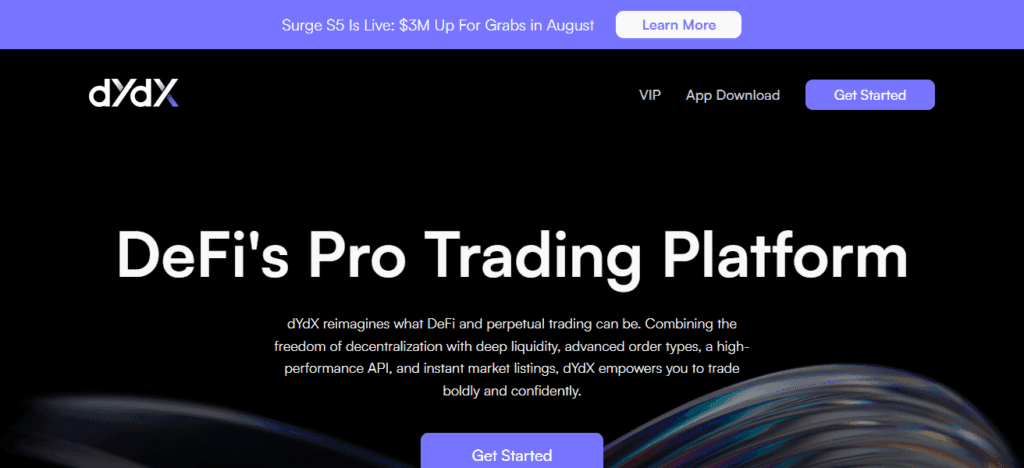
dYdX’s unique characteristic is offering perpetual contracts on a decentralized order book with high liquidity and close to instantaneous execution, thus bridging the DeFi and TradFi worlds.
This decentralized architecture minimizes counterparty risks and enhances the sophistication of the tools provided to traders, which are akin to those on centralized platforms. This makes dYdX far more powerful, innovative, and competitive than Bitget.
17.Bitstamp
Due to its reputation and robust regulatory practices, Bitstamp is internationally recognized as a trusted alternative to Bitget Exchange.
Unlike Bitget, which concentrates on serving a worldwide audience with futures and copy trading, Bitstamp is one of the oldest crypto exchanges and offers easy access to the crypto markets and enhanced security.
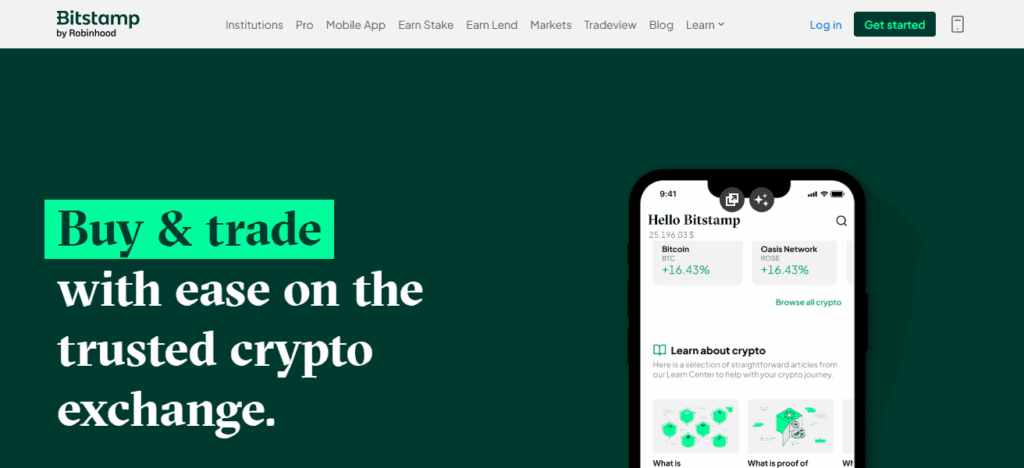
Bitstamp’s focus on compliance is unique, especially on integration of fiat with crypto, providing effortless deposit and withdrawal services for both retail and institutional clients in several currencies.
Bitstamp’s withdrawn approach to operations and prioritization of compliance and reliability make it a stable and trustworthy exchange for users who need an alternative to Bitget’s trading-centric platform.
18.Coincheck
Coincheck is a prominent competitor of Bitget Exchange globally and is well-established in Japan, known for being compliant with regulations and thoughtful of local policies. While Bitget is known for its derivatives and copy trading
Coincheck attracts novice traders and long-term investors with its straightforward spot trading, lending, and fiat-to-cryptocurrency services.
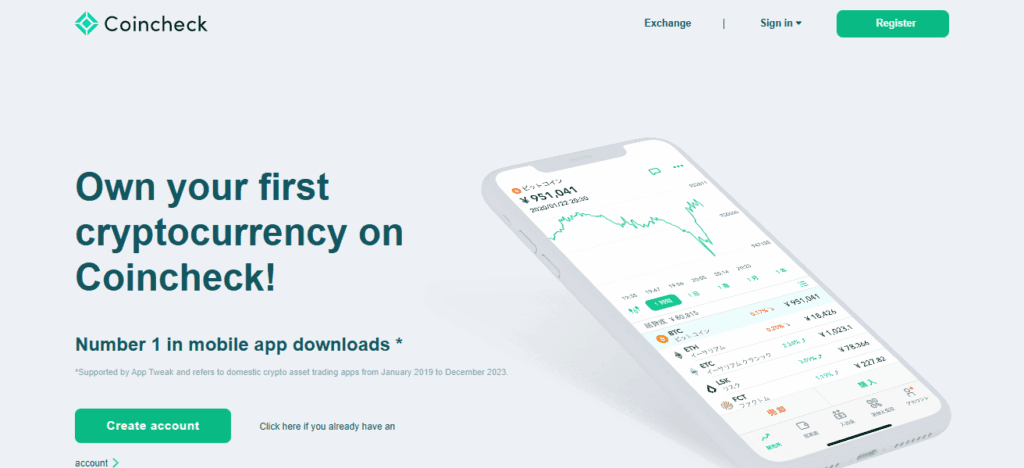
Coincheck’s distinguishing feature is its customer-centric mobile application designed for everyday users which simplifies the purchasing and management of digital assets.
Through licensed operations, implementing security enhancements, and offering added services such as NFT trading, Coincheck is a safer and more user-friendly alternative to Bitget.
19.LBank
L Bank’s focus on accessibility and the breadth of its token listings is making it gain popularity as an alternative to Bitget Exchange worldwide.
While Bitget is well known for its derivatives and copy trading, L Bank attracts traders from all parts of the world by offering altcoins and new projects well ahead of other exchanges.
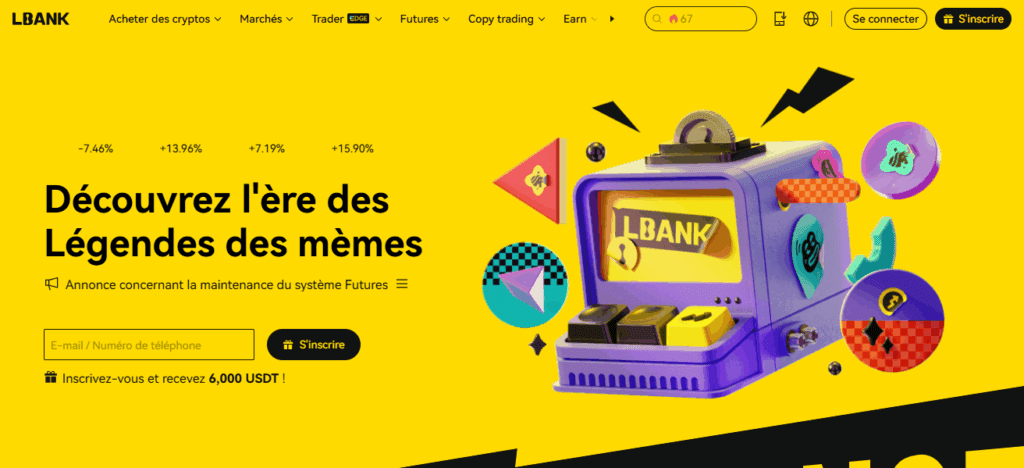
L Bank’s unique offering is its ability to launch new tokens which enables traders to access assets well ahead of major exchange listings.
Coupled with reasonable fees, mobile-accessible advanced trading tools, and community-based enhancements, L Bank is becoming an increasingly useful substitute to Bitget for traders in search of innovation and variety.
20.AscendEX
AscendEX, previously known as BitMax, serves as a marked challenger to Bitget Exchange worldwide due to its focus on trading as well as yield-generating activities.
While Bitget is renowned for copy trading and futures, AscendEX distinguishes itself with a greater selection of DeFi tokens, more staking options, and cross-collateral margin trading.
Of note, AscendEX is known for its early sponsorship of many innovative blockchain projects, often listing tokens well ahead of broader market exposure.
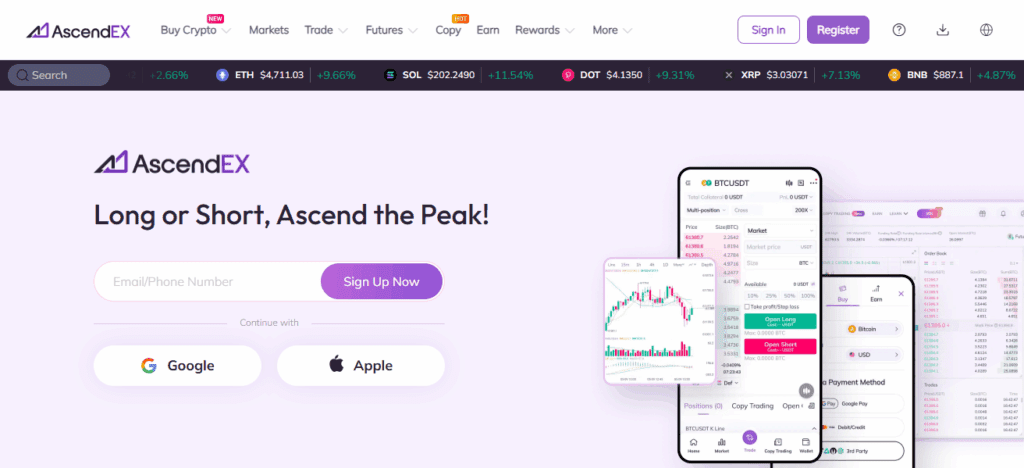
AscendEX stands out for its global user base and competitive fees, and unlike Bitget, offers a blended and centralized, as well as decentralized, structure to trading.
Pros And Cons Bitget Exchange Alternatives Worldwide
Pros:
Diverse Features – Many alternatives offer broader services beyond Bitget’s copy trading focus, such as spot, futures, options, DeFi, and even staking.
Greater Liquidity – Leading exchanges like Binance, OKX, and Kraken offer greater liquidity, decreasing slippage in high-volume trades.
Regulation & Trust – Crypto platforms like Coinbase and Bitstamp offer strong compliance and legal frameworks, making them favorable for risk-averse traders.
Early Access to Tokens – Bitget is usually slower at listing emerging cryptocurrencies in comparison to Gate.io, KuCoin, and LBank.
Cons:
Higher Fees – Competing alternatives, especially Coinbase, Bitget’s pricing is stung by higher trading fees.
Geographic Restrictions – Exchanges like Binance and Bybit are limited to serving certain countries.
Complex Interfaces – Bitget’s user-friendly design caters to beginners, while Deribit or Bitfinex’s professional-grade platforms can overwhelm newcomers.
Security Risks – Smaller or newer regulated exchanges face higher vulnerabilities and weaker compliance.
Conclsuion
In conclsuion Other than Bitget Exchange, users have access to more trading platforms across the globe such as Coinbase and Kraken, which adhere to strict regulations, to more modern platforms as dYdX and Deribit.
Every alternative has their own unique advantages such as having greater volumes, listing new tokens earlier than their competitors, and having sophisticated derivatives.
Selecting the appropriate exchange is determined by the user’s trading style, security requirements, and the products offered, providing more choices than what Bitget offers.
FAQ
For lower fees, stronger regulation, unique products, or access to more assets.
No, only a few like BingX focus on social and copy trading.
Coinbase, KuCoin, and Gate.io are beginner-friendly.





